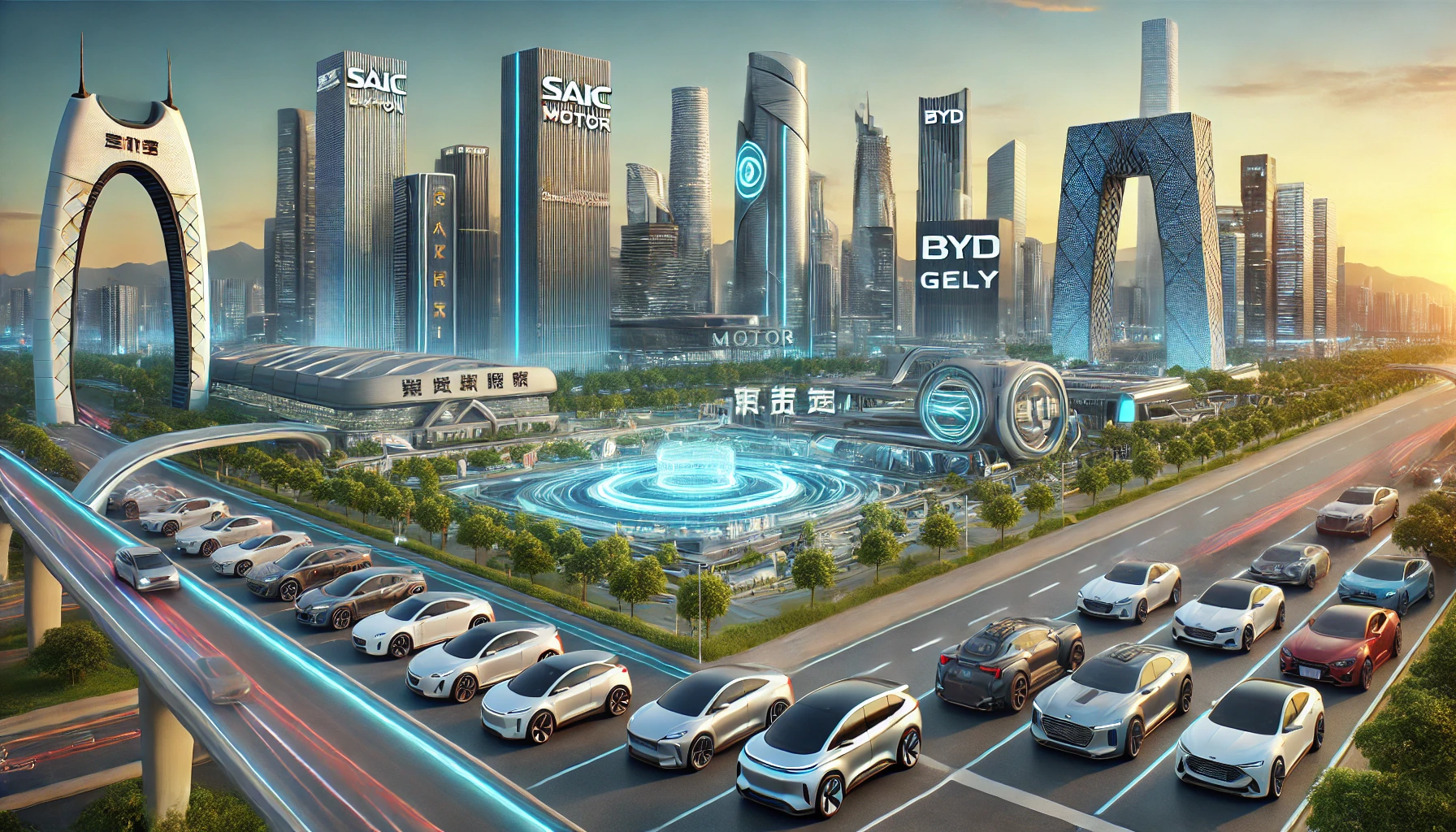The Automotive Industry of China: Growth, Innovation, and Global Influence
Introduction
China’s automotive industry is the largest and most influential in the world, leading in both production and sales. As a hub for technological advancements and innovation in electric vehicles (EVs), autonomous driving, and fuel efficiency, China’s car market continues to expand rapidly. With both state-owned giants and private automotive companies shaping the industry’s future, China is poised to dominate the global auto landscape.

History and Growth of China’s Automotive Industry
Early Beginnings
In the early 20th century, China’s automobile production was minimal. Economic reforms in the 1980s and 1990s introduced joint ventures with international automakers, accelerating industry growth. Government support and strategic policies fueled the mass expansion of China’s auto sector.
Rapid Expansion and Market Leadership
- Since 2009, China has been the world’s largest automobile producer and consumer.
- Strong government incentives for domestic car manufacturers and foreign collaborations have shaped the competitive market.
- With over 26 million cars produced annually, China continues to lead the global auto industry.
Key Players in China’s Automotive Industry
State-Owned Automotive Giants
SAIC Motor Corporation
Established in 1955, SAIC Motor is China’s largest automaker. The company owns brands like MG and Roewe and collaborates with global players such as Volkswagen and General Motors. SAIC is investing in electric vehicles, autonomous driving, and smart mobility solutions.
Dongfeng Motor Corporation
Founded in 1969, Dongfeng is a key player in China’s automotive sector. Joint ventures with Nissan, Honda, and Peugeot-Citroën (PSA) enhance its technological capabilities. Dongfeng focuses on electric vehicle production and autonomous driving research.
FAW Group Corporation
FAW, established in 1953, was the first Chinese company to manufacture commercial vehicles. Produces a diverse range of vehicles, including the luxury Hongqi brand. The company is expanding globally while investing in next-gen mobility solutions.
Leading Private Auto Manufacturers
Great Wall Motors (GWM)
- Founded in 1984, GWM is China’s largest SUV and pickup truck manufacturer.
- Brands like Haval and WEY cater to both domestic and international markets.
- The company prioritizes innovation in autonomous driving and alternative fuel technologies.
BYD: China’s EV Pioneer
- Established in 1995, BYD leads in electric and hybrid vehicle production.
- Expands beyond passenger cars into electric buses and charging infrastructure.
- Strong focus on sustainability and clean energy transportation solutions.
China’s Automotive Innovation and Trends
Electrification and the EV Revolution
The Chinese government provides extensive subsidies to promote EV adoption. Domestic brands like BYD, NIO, and XPeng are competing with Tesla in the EV market. China dominates global battery production, ensuring leadership in the EV industry.
Technological Advancements in Autonomous Vehicles
Companies like Baidu and Huawei are heavily investing in self-driving car technology. AI-powered driving systems and smart connectivity are reshaping China’s transportation landscape. Government-backed projects are accelerating the development of autonomous mobility solutions.
Challenges Facing China’s Automotive Industry
- Market Oversaturation: With an influx of brands and models, competition is fierce.
- Brand Perception: While improving, some Chinese brands still struggle with global recognition and quality perception.
- Global Expansion Hurdles: Chinese automakers face trade restrictions and regulatory challenges when expanding internationally.
The Future of China’s Automotive Sector
- With government backing, China aims to phase out internal combustion engine (ICE) vehicles in favor of EVs by 2035.
- Investments in smart mobility, AI integration, and alternative energy will drive future growth.
- As exports increase, Chinese automakers are set to challenge traditional industry leaders on a global scale.
China’s automotive industry continues to push boundaries with cutting-edge innovations, positioning itself as a leader in the global car market. With rapid advancements in electric vehicles, smart mobility, and green technology, China is shaping the future of the automotive world.


